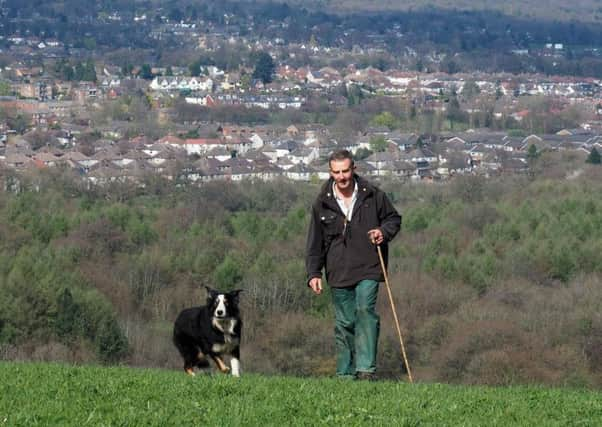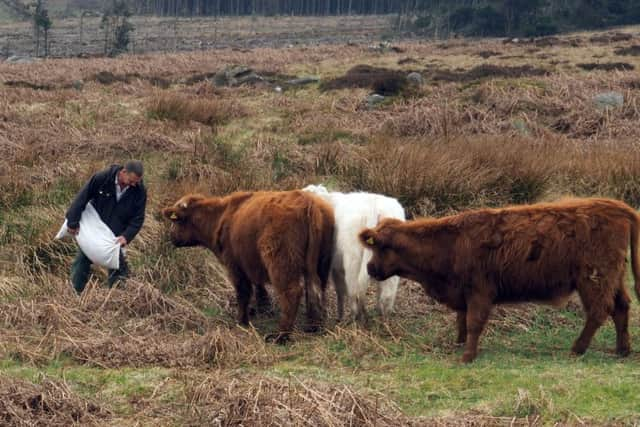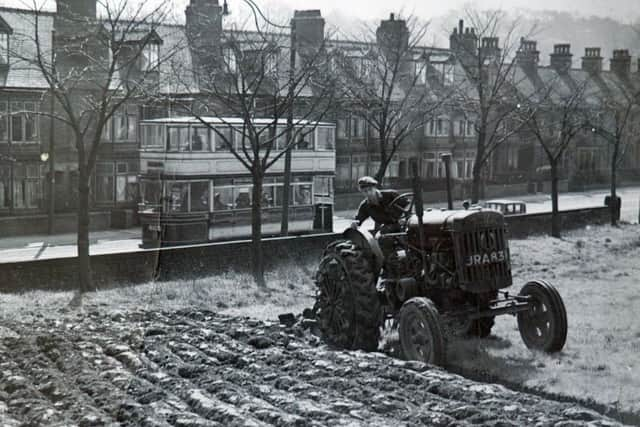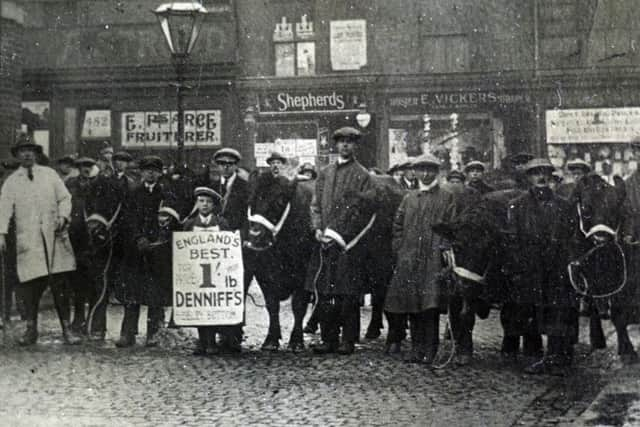How landscape shaped by farming is being conserved


“We came over in 1790 from County Wexford. It’s said someone got their f’s and s’s mixed up so we ended up as Denniff rather than Denniss. But my Auntie Beryl says we were descended from German pirates.”
Nick can often be seen chatting to mountain bikers, walkers and climbers as he goes about his work. “This landscape that we’re conserving here has been created by farming,” he said. “Who do you think put these gates and walls and fields in?”


Advertisement
Hide AdAdvertisement
Hide AdIn 2013 Nick took on the grazing tenancy for 4,500 acres of moorland at Burbage, Houndkirk and Totley from the Eastern Moors Partnership.
The partnership of the RSPB and the National Trust manages the moors on Sheffield’s outskirts for wildlife, and for over 250,000 visiting outdoor citizens every year. Nick is an enthusiastic supporter of wildlife and landscape conservation on his moorland, and of the Burbage valley’s recreational status set up by Sheffield Council.
“This place is here for everybody,” he said.
“But it’s also a factory floor.”


Recent tensions for local sheep farmers are dogs illegally off their leads. “I had to get a team of climbers in to help a group of sheep driven onto a rock face by dogs recently,” Nick said.
He’s a supporter of the Take the Lead campaign in the Peak District, and encourages responsible dog walkers to spread the word about keeping their dogs on a lead or under effective control during lambing and bird nesting season between 1 March and 31 July.
Advertisement
Hide AdAdvertisement
Hide AdHe says modern farmers need to be diplomats as well as business people. “Most upland farmers I know are forward thinking. We’re like a swiss army knife – multi functional.”
He keeps sheep and a herd of picturesque white bred short horn/highland cross cattle, for ‘conservation grazing’ – where meat production is balanced with measurable wildlife benefits, resulting from fewer animals grazing the moor in a more natural way.


Nick and wife Liz use their ‘moorlandmeat’ website to sell the resulting produce. “It’s superb, because they’re eating hay like it used to taste,” Nick enthused. “A farmer I know wrote to say it was the best meat she’d had since she was a kid.”
He said he could just stick a few highland cattle on the moors to satisfy the conservation grazing requirement, and then take them off and still claim the farming subsidy.
Advertisement
Hide AdAdvertisement
Hide AdInstead, he’s chosen a placid breed that can make a profit, but is unlikely to ‘stomp on some climber,’ as he put it.
“I could be a subsidy junkie, but it’s not in my make up.”


He hopes the subsidies after leaving the EU will strike a happy medium between environmental benefits like the clean air, clean water, and thriving wildlife required by governments and progressive landowners, and the income needed to keep farmers producing food for the nation.
“Some of the earlier generations had money handed to them for negative farming practices, and still think the tail can wag the dog,” he said. “But it can’t.”